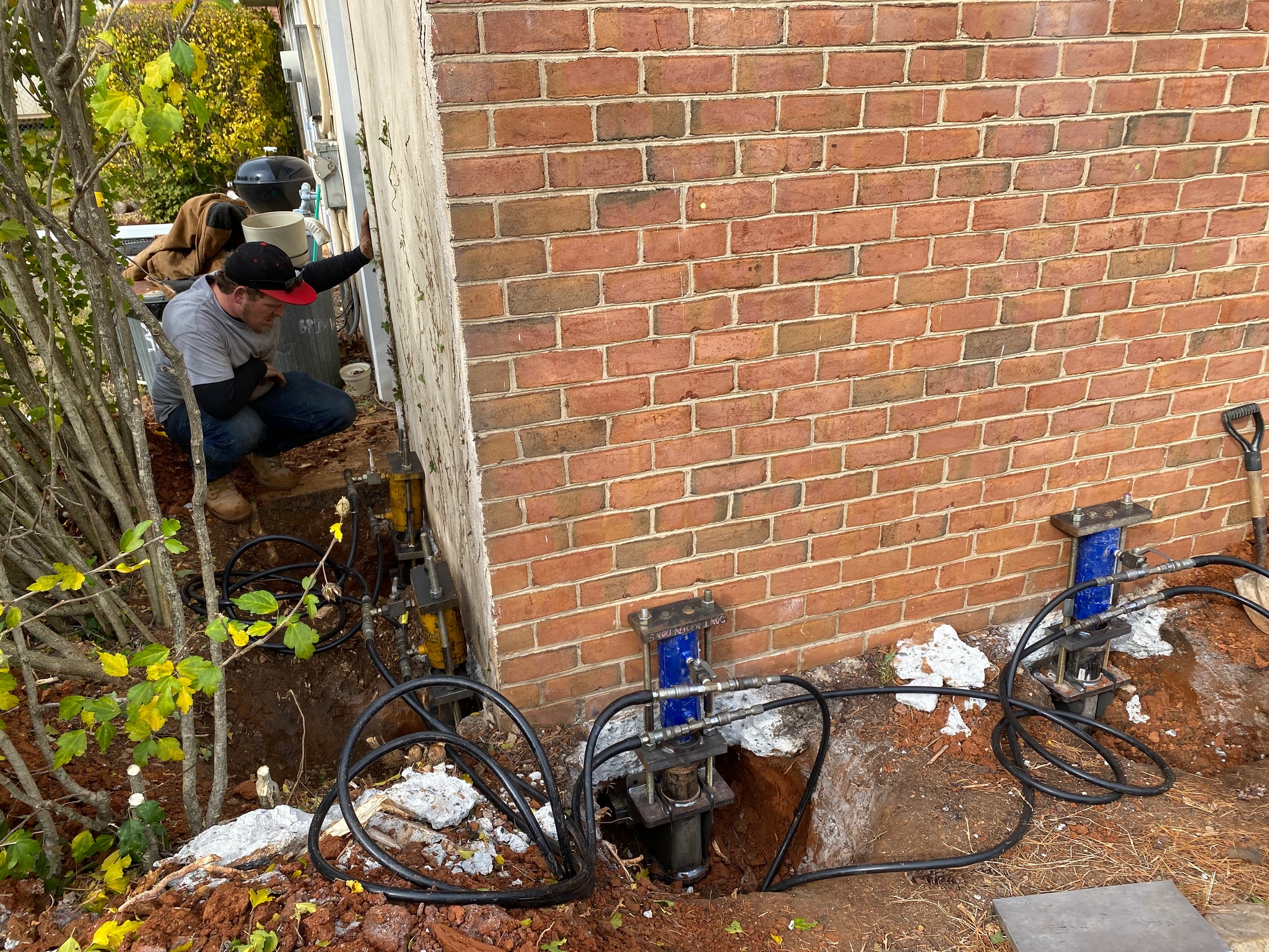
Have you ever thought about how the soil in Roanoke, Virginia, might be putting your home’s foundation at risk? The unique soil composition across Virginia—ranging from clay-rich areas in the Blue Ridge to sandy soils near the coastal regions—can greatly impact the stability of your home. It’s not just about the type of soil, but also how it interacts with water and shifts over time, which can result in settling, cracking, or even foundation failure.
To keep your home standing strong, it’s essential to understand these hidden threats lurking beneath the surface. At Seal-Tite Basement Waterproofing, we’ve spent decades helping Virginia homeowners protect their homes from the challenges of local soils.
Key Takeaways
- The type of soil in Roanoke and surrounding Virginia cities significantly influences foundation stability, impacting moisture retention, compaction, and erosion risks.
- Clay-heavy soils are common in Southwest Virginia and are prone to shrinking and swelling, which often leads to cracks and settlement.
- Sandy soils in parts of Eastern Virginia provide drainage but lack stability, which can shift foundations over time.
- Mitigation strategies for soil instability include proper drainage systems, foundation reinforcement, soil remediation, and water-resistant barriers.
- Regular foundation inspections and professional waterproofing services from companies like Seal-Tite can help protect your home for the long term.
Understanding Soil Composition in Virginia
Soil composition is a key player in foundation stability. In Virginia, you’ll encounter a mix of clay, sand, and loam depending on your location:
- Clay Soils (Roanoke, Lynchburg, Salem, Blacksburg): Expand when wet and shrink when dry, creating pressure against foundation walls and leading to cracks.
- Sandy Soils (Eastern VA & Tidewater): Drain water well but don’t provide strong support, which can result in settling and shifting.
- Loamy Soils (Central VA & Charlottesville): A mix of sand, silt, and clay. While balanced, loam can still retain water and affect foundations if drainage is poor.
Each type of soil has its own risks, making it important to know what’s under your home before issues become severe.
Soil and Foundation Interactions
Your foundation and the soil beneath it are constantly interacting. Factors like moisture levels, soil pH, drainage, and seasonal temperature changes all impact foundation stability.
- Excess moisture causes clay to swell, pressing against basement walls.
- Lack of moisture makes soils shrink and pull away, leaving gaps under your foundation.
- Freeze-thaw cycles in Virginia winters cause soil expansion and contraction, stressing foundation materials.
This is why Seal-Tite often recommends drainage solutions, sump pumps, French drains, and crack repair systems to minimize soil-related risks.
Impacts of Clay Soil in Roanoke
Much of Southwest Virginia, including Roanoke, is known for clay-rich soils. While clay holds water well, it also causes some of the biggest foundation headaches:
- Expansion and contraction: Constant wet-dry cycles lead to cracks in walls and floors.
- Foundation settlement: Over time, homes can sink unevenly, causing sloping floors and stuck doors.
- Drainage problems: Clay soils retain water, which can seep into basements and cause mold growth.
Seal-Tite’s foundation repair and waterproofing systems are designed to combat these specific clay soil challenges.
Sand Soil’s Effect on Stability
In contrast, sandy soils—more common in eastern parts of Virginia—drain quickly. That might sound good, but the lack of cohesion makes foundations more vulnerable to shifting. Signs of sandy soil instability include:
- Uneven settling.
- Cracks in drywall or brickwork.
- Gaps forming between floors and walls.
For these cases, reinforcement solutions like helical piers, push piers, and slab stabilization can restore stability.
Adapting to Loamy Virginia Soils
Loamy soils, found in Central Virginia (Charlottesville, Richmond), are a mixture of sand, silt, and clay. While loam is excellent for gardening, it poses risks for homes:
- Organic content can break down over time, leaving voids under the foundation.
- Moisture retention can create swelling and contracting cycles similar to clay.
The solution? Preventive strategies such as soil drainage systems, piering solutions, and waterproof barriers that protect your home from long-term damage.
Strategies for Protecting Your Foundation
No matter your soil type, your home’s foundation needs proactive care. Here are some of the most effective protection strategies Seal-Tite recommends:
- Regular inspections: Identify small cracks and settlement early before they worsen.
- Proper drainage: Keep water away with French drains, downspout extensions, and grading.
- Basement waterproofing: Use sump pumps, vapor barriers, and sealants to stop water intrusion.
- Foundation reinforcement: Install piers or carbon fiber straps for long-term stabilization.
Why Choose Seal-Tite?
With offices in Troutville (near Roanoke) and Chantilly (Northern Virginia), Seal-Tite Basement Waterproofing has been serving Virginia homeowners for decades. Our team knows the local soils, seasonal weather, and common foundation problems unique to this region.
We don’t just patch cracks—we provide long-lasting, warrantied solutions that keep your home safe, dry, and stable.
Conclusion
Roanoke and the rest of Virginia are home to diverse soil types that directly affect foundation health. From clay’s constant swelling to sand’s shifting instability, your soil plays a bigger role than you might think. By understanding these risks and working with trusted professionals like Seal-Tite Basement Waterproofing, you can prevent costly damage and protect your home for years to come.

Seal-tite Basement Waterproofing Co. is a full service basement environment contractor. We carry an A+ Better Business Bureau rating. We repaired over 40,000 homes and structures in Virginia, West Virginia, Tennessee, and North Carolina. We are fully insured and licensed. We have worked in all types of locations, including residential and commercial locations, government agencies, colleges, hospitals, churches, and condo associations.
Seal-tite® offers a lifetime transferable warranty. We carry a Class A Contractor’s License and we are fully insured. Our satisfied customers range from government agencies to businesses, hospitals, colleges, churches, and thousands of homeowners. Your home is probably the single largest investment you will make in your lifetime. Don’t wait, call Seal-tite® to help make your home dry, safe and livable.

